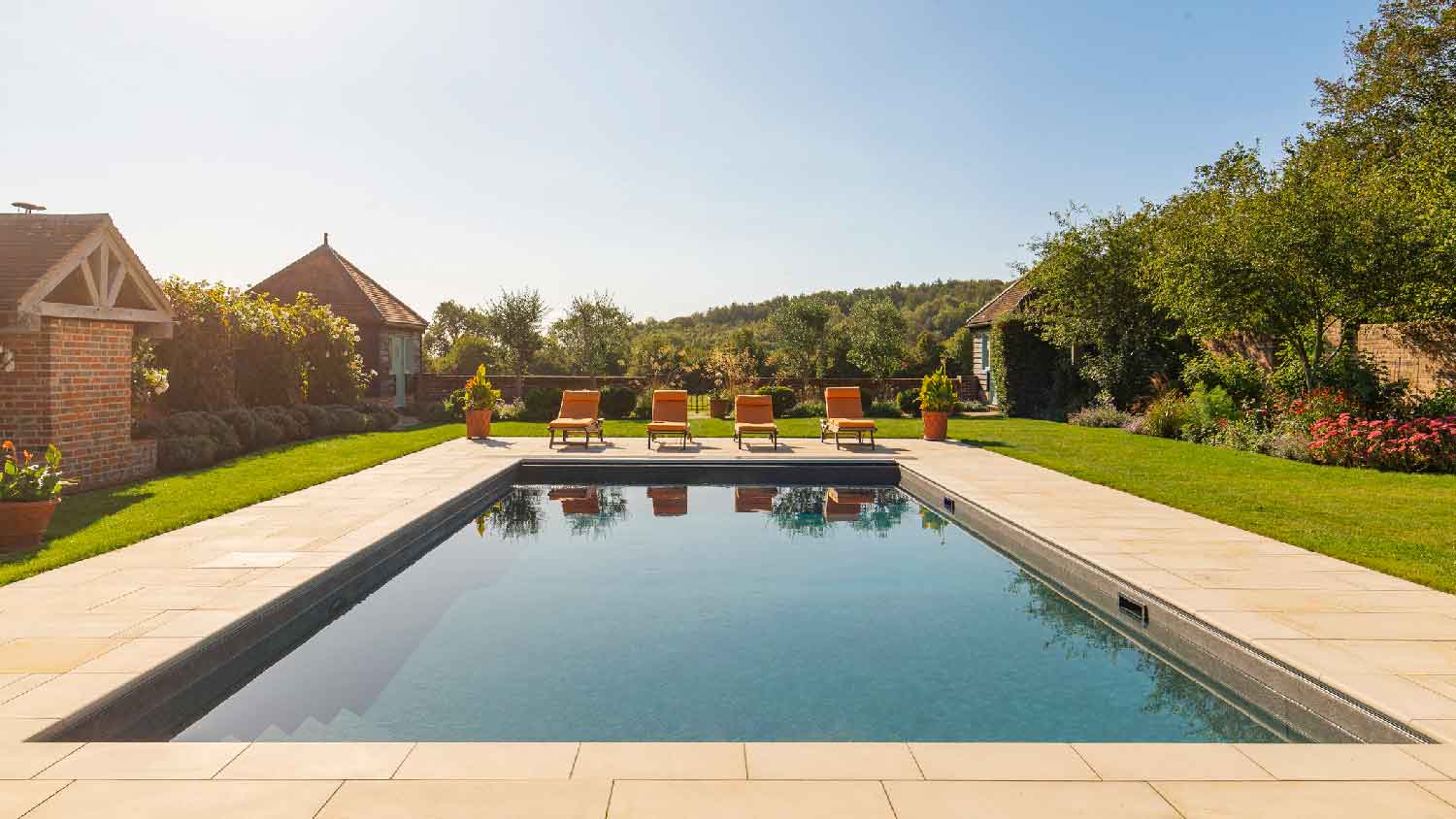7 Types of Hot Tubs to Add to Your Home or Backyard
Turn up the bubbles


If you are not well-versed in the world of hot tubs, it may seem like a hot tub is a hot tub; but in reality, there are quite a few different types to choose from. Deciding which hot tub option will work best for you and your space can help you reap the relaxation and health benefits of installing a hot tub for years to come.
Hot tubs come in many shapes and sizes, from the standard hot tub that you are probably picturing to rustic wooden hot tubs and even inflatable versions. To choose the right hot tub, consider the available space, the number of people who will be using it, the budget, and the results you want.
1. Inflatable Hot Tub

An inflatable hot tub is exactly what it sounds like; the hot tub inflates and can be filled with water. It includes jets, though they are not as powerful as those in a permanent model. The major benefit of an inflatable hot tub is that it can be set up indoors or outdoors and only used when needed.
If you are considering getting a hot tub but unsure if you would really use it, it might make sense to start with an inflatable hot tub. This keeps costs low and offers the benefits of a hot tub, while you decide if you would use it enough to justify a more permanent model.
| Pros | Cons |
|---|---|
| Standard outlet | Less durable |
| Portable | Minimal extras |
| Easy to set up | Lower water temperature |
Best for: Homeowners who are not ready to take the plunge with a permanent hot tub
2. In-Ground Hot Tub
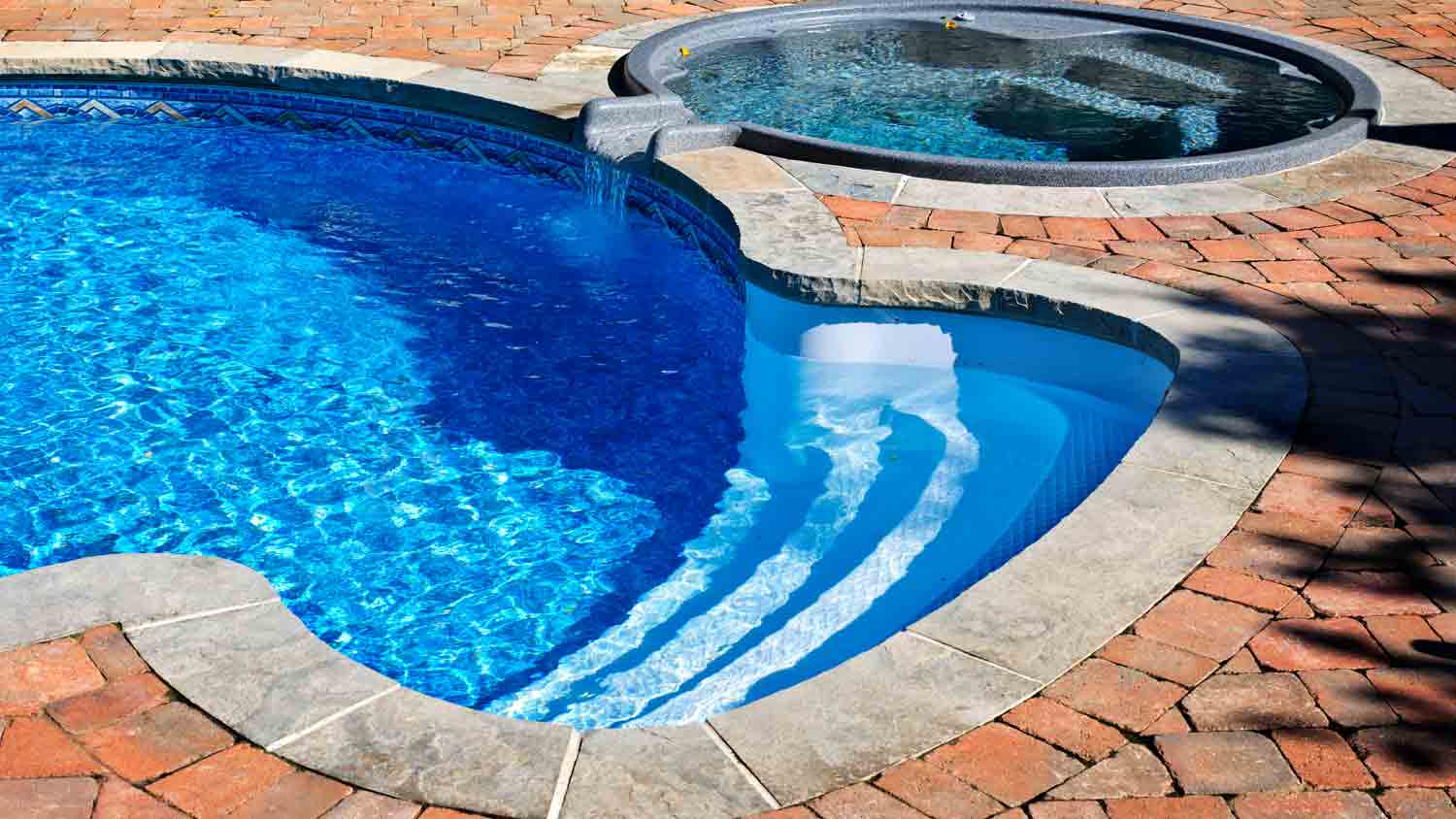
In-ground hot tubs are often installed along with a pool, but they can also be installed on their own if space is limited or homeowners do not want the ongoing maintenance and cost of a pool. An in-ground hot tub has the option of being connected to a water supply, which makes filling easier than using a hose. Because it is installed in the ground, the area will have to be excavated (and then landscaped), which can add to the total in-ground hot tub cost.
| Pros | Cons |
|---|---|
| Seamless design | May require permit |
| High-end | Expensive |
| Connected to water | Takes longer to install |
Best for: High-end homes
3. Wooden Hot Tub
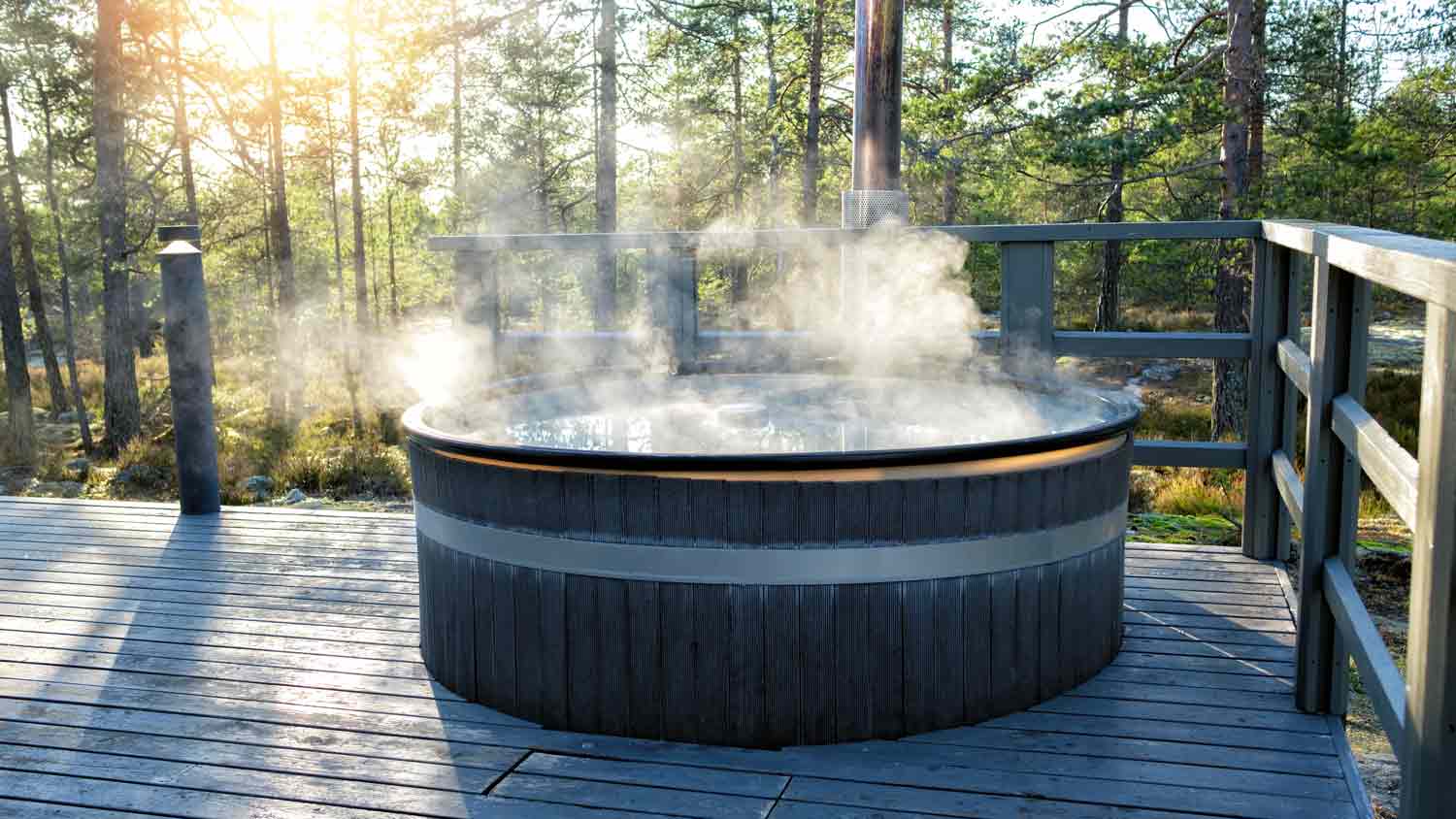
Wooden hot tubs often resemble barrels and are heated with a wood-burning stove. They evoke the simple, calming nature of Scandinavian design and are ideal for homeowners who live off-grid or do not want to depend on electricity to heat their hot tub. If you want the beauty of a wooden hot tub, but with the efficiency of an electric heater, you can also go that route. This type of hot tub, which comes with massaging jets, also lends itself well to acting as a plunge pool if it is unheated.
| Pros | Cons |
|---|---|
| Electricity optional | Heats water slowly |
| Beautiful design | Expensive |
| Can be a cold plunge | Manual temperature control |
Best for: Cozy nights in off-grid homes
4. Standard Spa
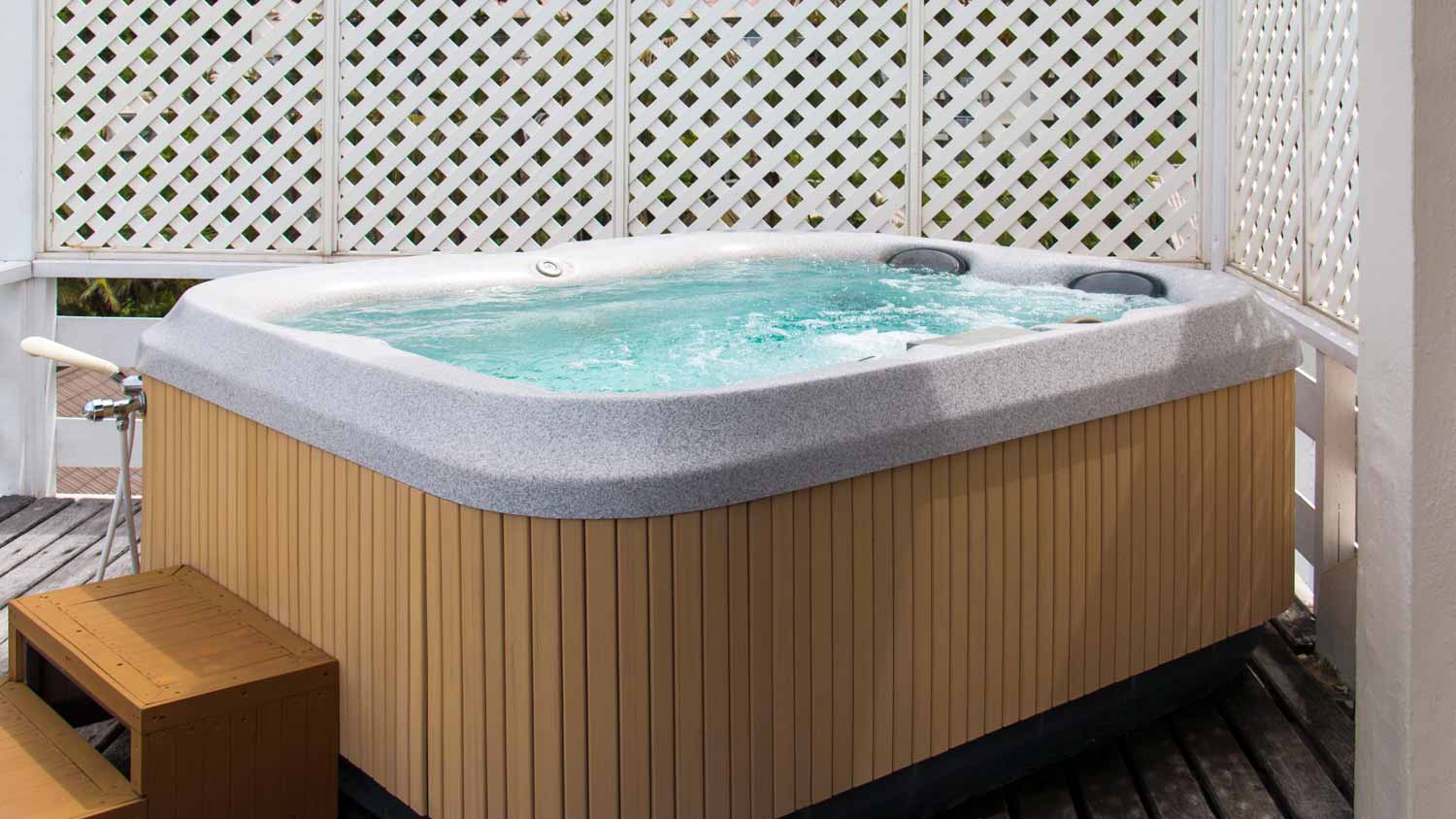
When you think of a hot tub, the standard spa is likely what comes to mind. This large square or round hot tub with an acrylic or fiberglass insert includes multiple seats surrounded by jets. Standard spas offer many features like cupholders, headrests, lighting options, and more. Smaller hot tubs can be plugged into a standard 110V outlet, but larger models with more features will likely need to be connected to an outlet that supports at least 220V. This may mean hiring an electrician to wire a new outlet in an accessible spot.
| Pros | Cons |
|---|---|
| Common style | May need 220V |
| Affordable | Needs foundation |
| Customizable | Less aesthetically pleasing |
Best for: Homeowners who want the convenience of a common style
5. Rotationally Molded Hot Tubs

Rotationally molded hot tubs, also referred to as rotomolded, use rotational molding techniques and polyethylene resin to create a lightweight, one-piece hot tub. This is the ideal design for hot tub users who want a streamlined modern hot tub.
Unlike traditional models made from fiberglass, wood, and acrylic to create a separate shell and cabinet, this all-in-one system is easier to install and uses a standard 110V outlet, which means that installing the hot tub will likely be easier than with other types.
| Pros | Cons |
|---|---|
| Affordable | Not the most durable |
| Uses 110V outlet | Less attractive |
| Lightweight | Less efficient |
Best for: Homeowners who want a traditional hot tub at a more affordable price
6. Spillover Spa
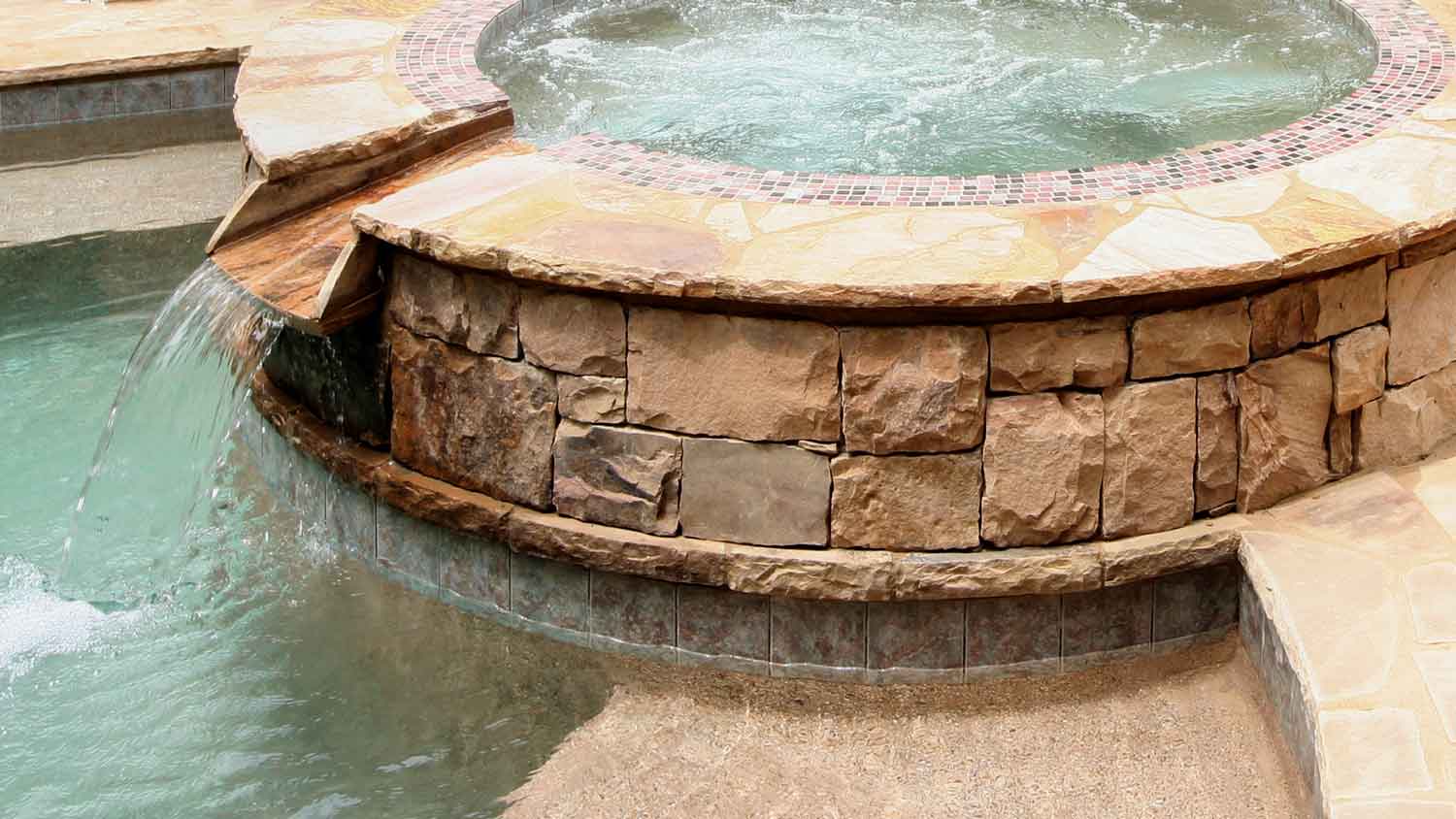
If you are planning on installing a pool and hot tub at the same time, or adding a hot tub to your existing pool, consider a spillover spa. This design allows water from the spa to “spill over” into the pool, creating the soothing sounds of cascading water.
Choosing this design gives you the option of taking a cool dip in the pool, spending some time relaxing in the hot spa, or both. If you are installing a pool at the same time, talk with a pool and hot tub installer near you to figure out the details.
| Pros | Cons |
|---|---|
| Calming sounds | More expensive |
| Convenient | Requires a pool |
| Attractive | Requires excavation |
Best for: Homeowners who want both a pool and hot tub
7. Swim-Spa Combo
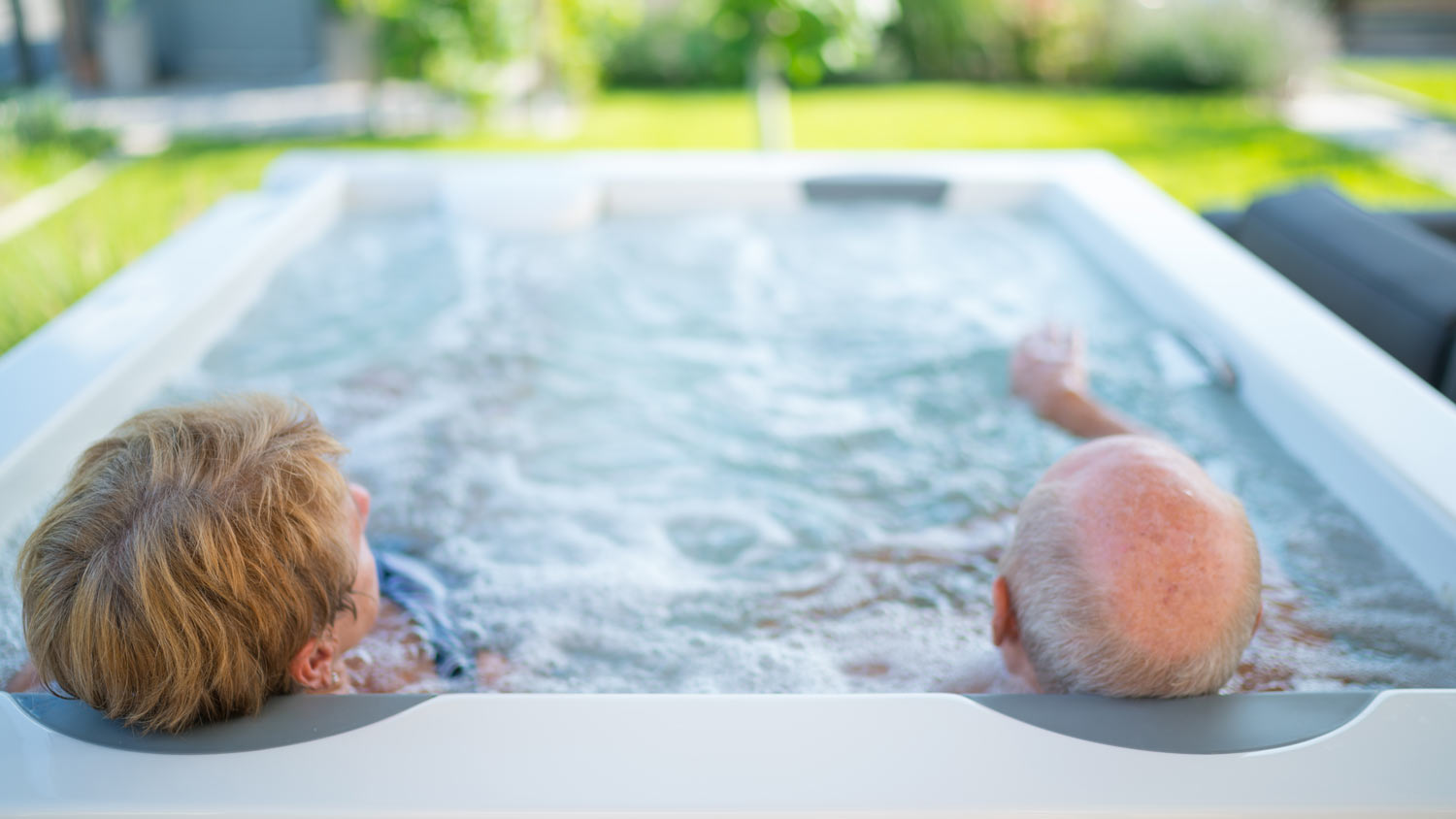
If you want a pool but lack the space or budget for a full-size version, then a swim-spa combo may be the solution. This type of hot tub is typically shaped like a long rectangle with a hot tub on one side and a pool on the other. Dual temperature controls and a divider between the two sides allows you to set the ideal temperature for each side.
The pool offers a current that allows users to swim. This makes it easy to get exercise in the pool and then settle into the hot tub for relaxation. A swim-spa combo can be installed above ground or in-ground, depending on space, budget, and your needs.
| Pros | Cons |
|---|---|
| Multi-use | More expensive |
| Convenient | Needs more space |
| Dual temperature controls | May need excavation |
Best for: People who want the best of both worlds
How Much Does a Hot Tub Cost?
Hot tub cost largely depends on the type of hot tub and customization options you choose. On the lower end, inflatable hot tubs cost around $1,000 or less, and because they do not run all the time, they use less electricity than other models. An entry-level standard hot tub with minimal jets and no customizations will range from $2,500 to $5,000. More aesthetically pleasing and niche hot tubs, like spillover spas and wooden hot tubs, can cost between $6,000 and $8,000. Fully customized high-end hot tubs can cost anywhere from $8,000 to over $35,000.


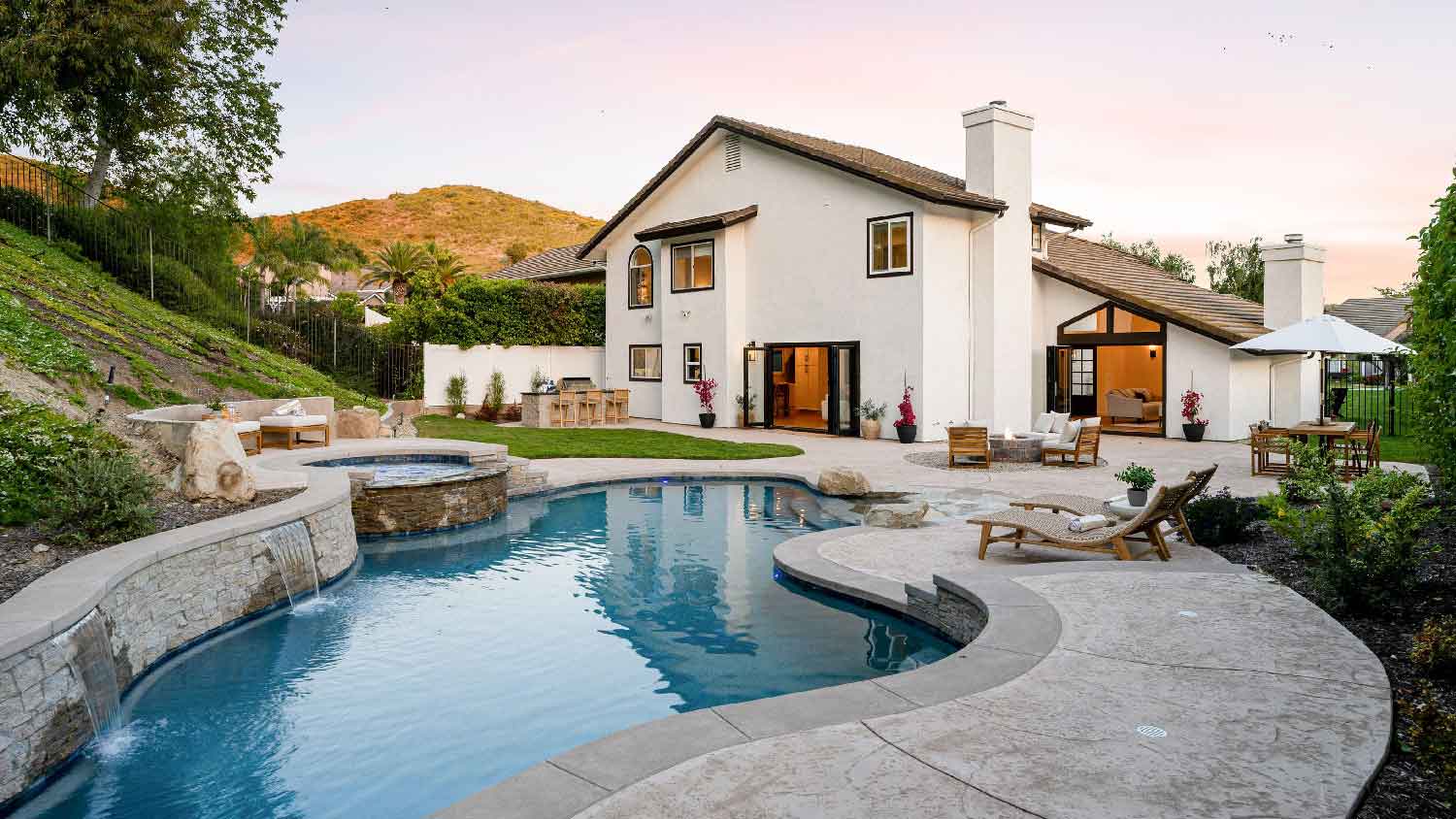

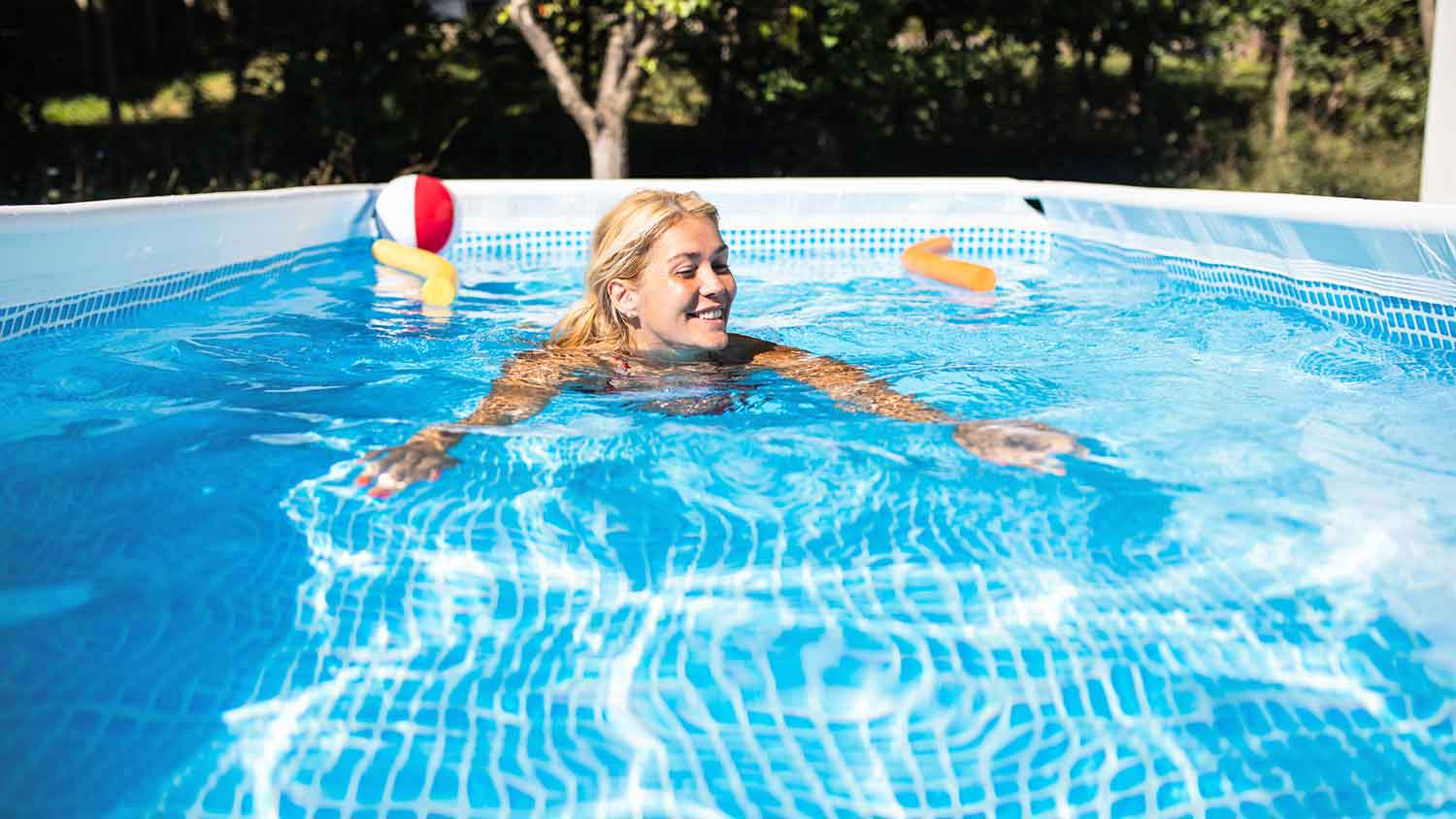
- How Long Does a Hot Tub Last?
- Can You Put a Hot Tub in Your Basement?
- Are Hot Tubs Worth It? Pros and Cons Explained
- How Does a Hot Tub Work Its Magic?
- 8 Must-Know Tips for Installing an Indoor Hot Tub
- Replacing vs. Refurbishing a Hot Tub: What You Should Know
- 24 Hot Tub Deck Ideas for a Backyard Paradise
- The Ins and Outs of Hot Tub Electrical Requirements
- What’s the Ideal Hot Tub Temperature for You?
- How to Clean a Hot Tub Filter Properly



